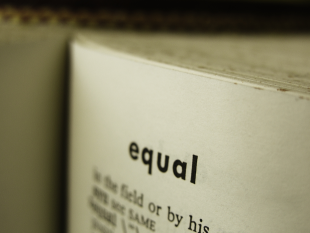
Today’s news review looks at coverage of the gender pay gap.
Gender pay gap
Various outlets including the Telegraph, Guardian, Sky and the BBC have reported on an Institute for Fiscal Studies (IFS) study that claims the gender pay gap increases year-on-year following childbirth. The report attributes this to women coming back from maternity leave on lower hours suffering low hourly wages as a result of poor pay progression.
A separate survey by the Chartered Management Institute (CMI) and XpertHR claims that male mangers are 40% more likely to be promoted than female managers. This has been covered by outlets including the BBC and the Mirror.
The gender pay gap is the lowest it has ever been but we want to make our country a place where everyone can succeed at work. That’s why from April 2017 we are – for the first time ever – introducing a legal requirement for large businesses to publish information on how much they pay their male and female staff. By highlighting the pay gaps in our workplaces we can help drive businesses to remove the barriers that can hold women back.
We have also introduced shared parental leave, doubled the amount of free childcare available to working parents and we are working with employers to ensure that women, no matter their age, have the support they need to stay in the workforce.
Gender pay gap vs equal pay
Some of today’s coverage refers to equal pay and women getting paid a ‘lower hourly rate’, as opposed to the gender pay gap. So what is the difference?
- Paying individuals different amounts for the same job, or paying them different amounts for equivalent work is illegal and has been for the past 45 years.
- The gender pay gap is the calculation of the difference in the average hourly pay received by men and women.
- Women are more likely to take time off work to take on caring responsibilities, such as childcare or looking after elderly relatives. This can lead women to leave the workforce altogether or return to work in lower paid roles, or on a part-time basis, while their male counterparts might continue to progress in their careers.
- There is also evidence that women are less likely to ask for promotions or pay increases and there are still some negative connotations around flexible working and productivity that can lead to gender-based bias in the workplace.
- All together, these factors lead to a gender pay gap for men and women.
In response to the IFS report:
A Government Spokesperson said:
We want to make our country a place where there is no limit on anyone’s ambition or what they can achieve – that means making sure everyone, regardless of their gender, can succeed at work.
The gender pay gap is the lowest on record but we know we need to make more progress and faster. That’s why we are pushing ahead with plans to force businesses to publish their gender pay and gender bonus gap – shining a light on the barriers preventing women from reaching the top.
We have also introduced shared parental leave, doubled the amount of free childcare available to working parents and we are working with employers to ensure that women, no matter their age, have the support they need to stay in the workforce.
In response to the CMI report:
A Government Spokesperson said:
This Government is doing more than any before to reduce the gender pay gap. From April, large employers will, for the first time ever, be forced to publish information on how much they pay their male and female staff.
But this isn’t just the job of Government - business has an important role to play too. This report highlights some important issues and we expect business to look closely at its findings.
We want to make our country a place where there is no limit on anyone’s ambition or what they can achieve – that means making sure everyone, regardless of their gender, can succeed at work.
Follow the Government Equalities Office on Twitter and don't forget to sign up for email alerts.